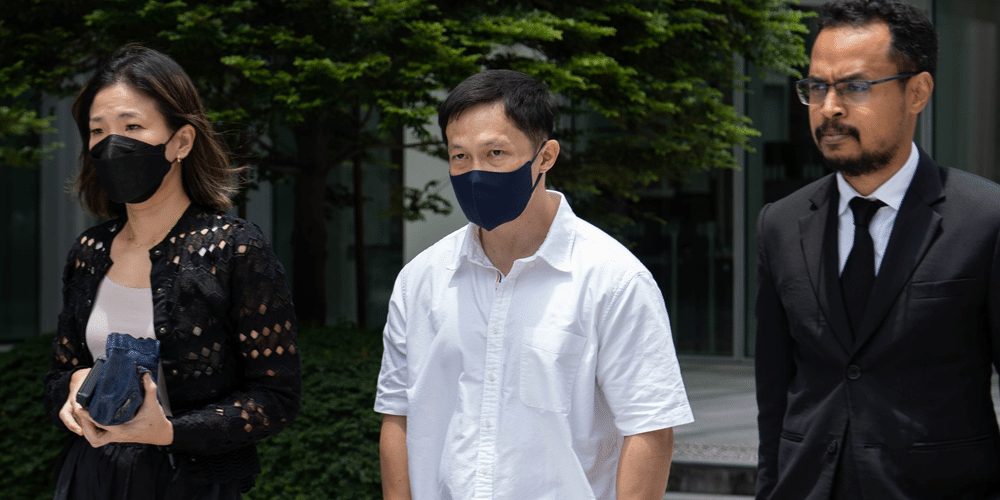Speaking at the debate on the Goods and Services Tax (Amendment) Bill, Non-Constituency Member of Parliament, Leong Mun Wai delivered a speech that is distinctly different from his usual ones.
Emulating what Er Dr Lee Bee Wah, former People’s Action Party (PAP) Member of Parliament at Yishun GRC used to do — who is well-known for telling stories in her parliamentary speeches, Mr Leong also told a story in Mandarin which is a sequel to one of the stories previously told by Er Dr Lee.
For those who are not familiar with Er Dr Lee’s story of “Ah Seng” and his “Ah Gong” (grandfather), the former PAP MP delivered this story in March 2019, as a parable about the good intention of the Singapore Government saving up money to benefit its people.
Mr Leong’s speech which is meant to be a sequel to Er Dr Lee’s story, goes as below:
Ah Seng’s parents died when he was very young and he was brought up by his grandfather. Ah Seng was not a prodigal son or a “see gui kia” who only knew how to get money from his grandfather. Ever since Ah Seng started working, he had always been giving his grandfather a large proportion of his salary.
After Ah Seng got married and had children, his expenses began to increase rapidly, but his grandfather continued to ask Ah Seng to increase his allowance. Grandfather had his reasons, like he needed money to pay his wife’s medical bills, or because he needed money to refurbish the ancestral homes. Hence, all this while, Ah Seng carried a heavy financial burden and had limited cash savings.
If the extended family was truly short of money, grandfather’s requests would be reasonable. But as Ah Seng grew older, he realised that the extended family, headed by his grandfather, was doing pretty well financially, as their ancestors had left behind many properties and assets. However, the grandfather never revealed this to Ah Seng, and deliberately kept it as a secret.
All this while, Ah Seng, who had a strong notion of self-reliance, had not given much thought to the ancestral assets. He did not complain even when he had to pay his grandfather the market price to purchase a house allocated to him out of the ancestral assets when he got married.
At the time, the grandfather gave Ah Seng some money to help with the down payment, and Ah Seng borrowed money from banks to pay for the rest of the house. After that, the grandfather continually to invest the proceeds from the sale of the house that he received from Ah Seng.
As Ah Seng entered middle age, his career began to flounder and his income became unstable. The cost of living also began to rise precipitously. Under such circumstances, when grandfather again asked Ah Seng to increase his allowance, Ah Seng felt aggrieved, and started to feel some discontent towards his grandfather.
Furthermore, each time any family member questioned the grandfather about the ancestral assets, he would rage and call them spoilt children. He would warn them not to spout nonsense.
Actually, Ah Seng agreed that they should leave behind more assets for the future generation, but not without addressing the urgent needs of the present generation.
Fellow Singaporeans, do you agree with the grandfather’s behaviour? If you are Ah Seng, would you agree to his grandfather’s request for an increase in allowance?
Justice is in the hearts of the people.
Mr Leong, voicing his party position, said that the Progress Singapore Party (PSP) does not support the amendment bill to increase the Goods & Service Tax (GST).
Workers’ Party also expressed its opposition to the amendment bill at the end of the debate.
However, the bill was nevertheless passed as the People’s Action Party hold majority seats in Parliament, therefore GST will increase from 7 per cent to 8 per cent from 1 Jan 2023 and from 8 per cent to 9 per cent from 1 Jan 2024.
Following Mr Leong’s delivery of his story, Senior Minister of State for Finance and Transport, Chee Hong Tat also chimed in to share his thoughts.
Referring to the characters of the story, he said that it is more accurate to note Ah Seng gives lesser money than the amount that Ah Gong gives him.
Mr Chee also notes that if Ah Seng is from a low-income family, he will get back $4 for every $1 he gives to Ah Gong. If Ah Seng is from a middle-income family, he will get $2 back.
He further points out that the savings by Ah Gong are meant for greater returns, meant for future generations and that taking care of seniors is a virtue of Asian society and that he thinks that Ah Gong is very appreciative of Ah Seng’s circumstances and is not asking him to immediately pay for the medical bills of his grandmother but allowing him 5 to 10 years of buffer to pass the middle age crisis.
Mr Chee ended his story by emphasising that the reason why the grandparents work so hard and save so much, is simply for the interest of their children and their children’s children.








